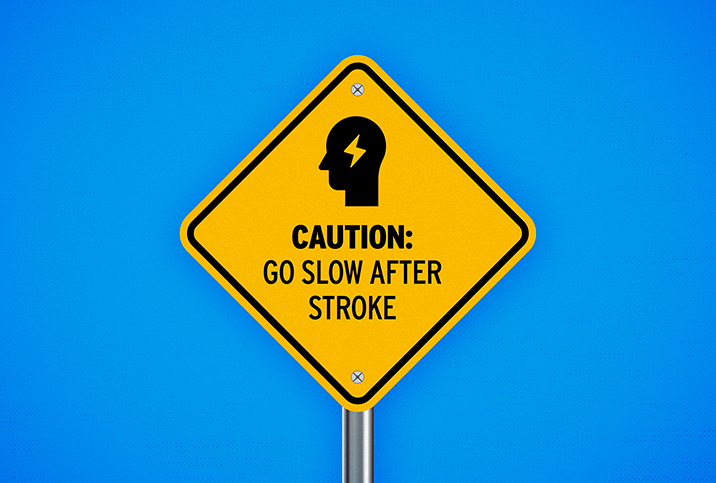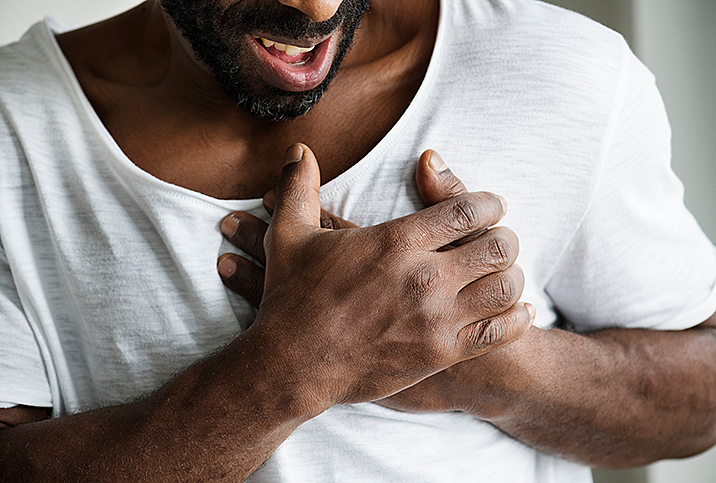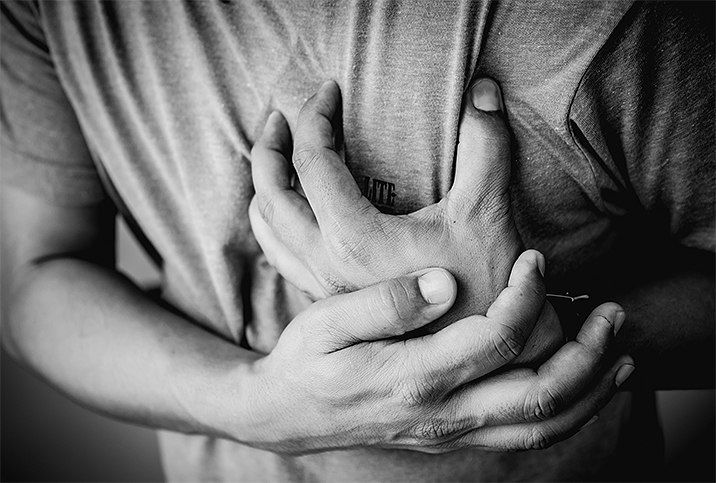How Not to Die During Sex When You've Had a Stroke

No matter how minor the event, recovering from a stroke is an involved process. Most people who suffer a significant health setback want to get out of bed and back to their usual habits as soon as possible. Unfortunately, in matters of the heart, it's rarely a straightforward recovery.
"There's no simple timeline when recovering from a stroke," said Patrice Lindsay, R.N., Ph.D., director of health systems change and stroke specialist for the Heart and Stroke Foundation of Canada. "The biggest question is which part of the brain was affected and at what level of severity."
Assessing the recovery timeline
Lindsay explained that many patients' primary concerns when recovering from a stroke are motor and speech functions, but challenges can also manifest in memory loss and other neurological problems.
"When we think about it, a perfectly capable adult can go from their daily life to struggling with speech and basic bodily functions in a matter of minutes," Lindsay said, noting that such a change can have a serious impact on mental health.
Every factor from the patient's health, age, the severity of the stroke and the time it takes to get medical attention can impact the length of recovery and the potential for permanent impairments.
"Another concern is how long it takes a patient to begin rehabilitation following a stroke," Lindsay noted. "We've learned that the faster we start rehabilitation, the quicker the brain can recover, which helps patients get back on their feet and, in many cases, can prevent permanent quality of life changes."
Getting back to your love life
Recovering from a stroke is often a frustrating journey, and while the patient is most impacted by this event, the patient's family—particularly their partner—is also affected. In addition to physical and mental wellness, patients can have concerns about intimacy with their partner following a stroke.
"Being sexually active again after a stroke is possible. But you must be patient and talk with your medical provider about any risks and/or resources, such as medication, for assistance," said a spokesperson for the BELIEVE – Stroke Recovery Foundation in Raleigh, North Carolina.
This need for patience extends to a patient's partner because, depending on the part of the brain impacted by the stroke, a patient may be physically unable to have sex, get aroused or have any interest in sex.
In particular, patients may fear sex can cause another stroke because of physical exertion. However, while the heartbeat accelerates and breathing becomes heavier, that's normal, according to the American Stroke Association in Dallas.
To overcome these fears, don't hesitate to discuss risks with your cardiologist so you'll know when it's safe to have sex again.
Be honest with your partner
Patients recovering from a stroke may be prevented from having sex due to a variety of obstacles, such as medications blocking arousal and climax, poor mental health and the stress of rehabilitation. These factors, paired with the frustration of a lack of intimacy, can cause strain in your relationship.
"When a patient is managing a chronic condition, whether physical or psychological, this opens the door to conflict," said Kimberly Pisarcik, a licensed clinical social worker in Wilkes-Barre, Pennsylvania. "These difficult times are the moments where we need the most support from our partners, but we can become so caught up that these are typically the times when we forget to offer that support."
In these instances, the most helpful tool is communication.
"We need to be honest about how we're feeling, our symptoms, our frustrations," Pisarcik continued. "Too often, we think we should put on a brave face, but this just pushes our partners away. Don't be afraid to break down that wall and be vulnerable."
She recommended partners help with recovery. The positive impact of being there, listening and supporting their partner can bring couples closer together and build on their emotional intimacy.
Taking it slow
When it's safe for you to have sex again, there may be concerns about performance. The best advice is to take it slow. It's unrealistic to think you can jump into bed as if nothing happened; you might simply find you lack the stamina.
In these instances, the Heart and Stroke Foundation of Canada recommends proper planning to help ease back into your sex life. This might sound like you're taking the fun out of intimacy, but planning can help you get in the mood for sex. Think of it as you would a first date. Choose a restaurant or activity you and your partner will enjoy, set the scene in your bedroom with soft lighting, or plan a getaway for the weekend to a hotel and spa.
The most important aspect is to take the lead and be open with your partner about how you're feeling and what you're capable of doing. If you lack stamina, trying sex toys during intimate moments with your partner could help reduce the physical strain.
Don't put too much pressure on yourself or your partner. If you try and fail, be supportive of each other and plan to try again. Just like your physical and mental rehabilitation, your sex life may take time to rebuild, but the goal of physical intimacy following a stroke is within reach, so don't give up.
Speak to your doctor, keep them involved in your progress and don't be shy. They've heard it all before and may be able to prescribe medication to help with any performance issues.


















